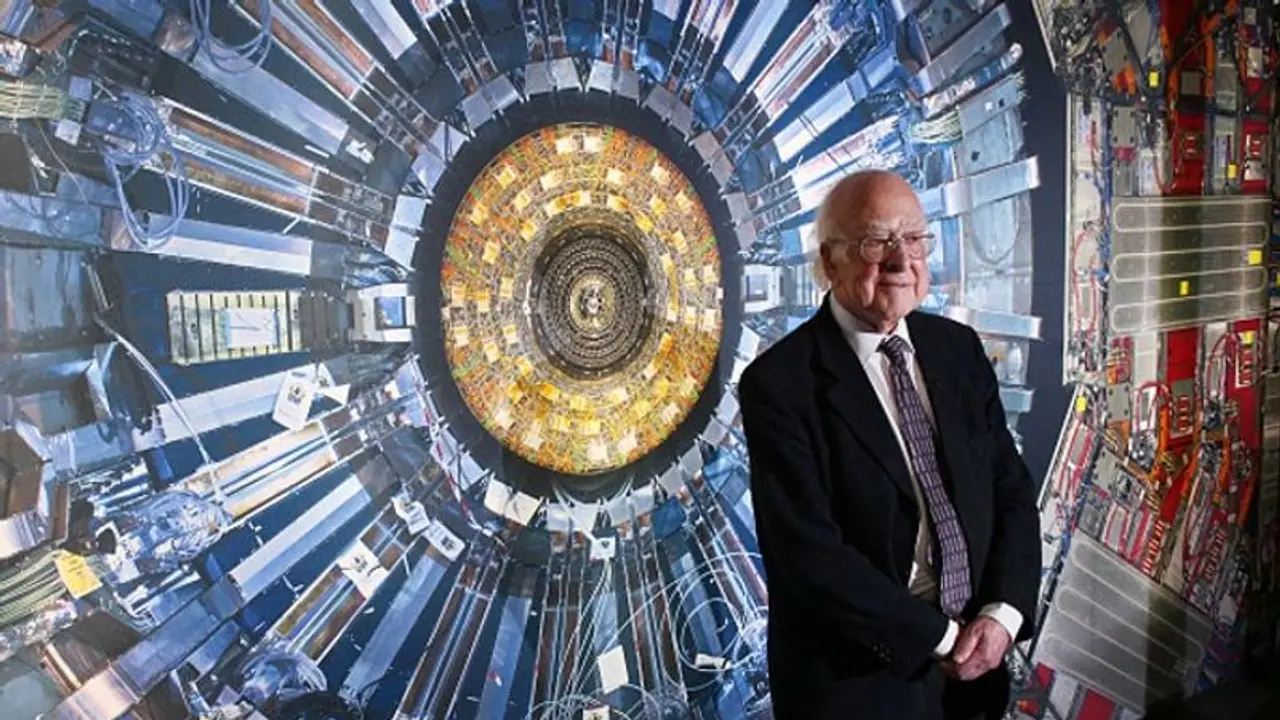Renowned physicist Peter Higgs, who garnered a Nobel Prize in Physics in 2013 for his groundbreaking discovery of the Higgs boson, has passed away at the age of 94. He breathed his last at his residence in Edinburgh on Monday.
Renowned physicist Peter Higgs, who garnered a Nobel Prize in Physics in 2013 for his groundbreaking discovery of the Higgs boson, has passed away at the age of 94. He breathed his last at his residence in Edinburgh on Monday.

Higgs achieved fame for his seminal work in 1964, elucidating how the Higgs boson plays a pivotal role in conferring mass upon particles, thereby contributing to the cohesion of the universe. His theory was vindicated by experiments conducted at the Large Hadron Collider in Cern, Switzerland, commencing in 2008 and culminating in the historic confirmation in 2012. The Nobel Prize was jointly awarded to Higgs and François Englert, a Belgian theoretical physicist, whose parallel contributions in 1964 significantly contributed to the eventual discovery.
As a distinguished member of the Royal Society and a Companion of Honour, Higgs dedicated the majority of his esteemed career to Edinburgh University. In recognition of his remarkable contributions, the university established the Higgs Centre for Theoretical Physics in 2012 as a tribute to his legacy.
Prof Peter Mathieson, the university’s principal, said, “Peter Higgs was a remarkable individual – a truly gifted scientist whose vision and imagination have enriched our knowledge of the world that surrounds us. His pioneering work has motivated thousands of scientists, and his legacy will continue to inspire many more for generations to come.”
The Royal Swedish Academy of Sciences, responsible for bestowing the Nobel Prize, emphasized that the foundation of the standard model of physics, essential for comprehending the universe, hinges on the existence of a unique entity: the Higgs particle. This particle emanates from an imperceptible field permeating all of space.
“Even when the universe seems empty this field is there. Without it, we would not exist, because it is from contact with the field that particles acquire mass. The theory proposed by Englert and Higgs describes this process.”
A profoundly reserved individual who eschewed attention, Higgs departed his residence for a serene lunch of soup and trout in Leith on the day of the announcement. En route home, he was halted by a former neighbor who relayed the news to him.
Originally from Newcastle upon Tyne, Higgs is survived by two sons, Chris and Jonny, as well as two grandchildren. His wife, Jody, a linguistics lecturer from whom he was estranged, passed away in 2008.
Who was Peter Higgs?
In the annals of scientific history, certain names stand out as beacons of innovation and discovery. Among them, Peter Higgs shines brightly—a brilliant physicist whose groundbreaking work revolutionized our understanding of the universe. As the architect behind the theory of the Higgs boson, Higgs cemented his place in the pantheon of scientific luminaries, leaving an indelible mark on the field of particle physics.
Born on May 29, 1929, in Newcastle upon Tyne, England, Peter Ware Higgs displayed an early affinity for mathematics and science. He pursued his academic passions with fervor, earning degrees in physics from King's College London and the University of Edinburgh. It was during his time at Edinburgh that Higgs embarked on the journey that would ultimately reshape the landscape of modern physics.
In 1964, Higgs published a seminal paper that proposed the existence of a new particle—the Higgs boson. At the heart of his theory lay a revolutionary concept: the mechanism by which particles acquire mass. According to Higgs's hypothesis, a ubiquitous field permeating the cosmos—the Higgs field—interacts with particles, imparting mass to them as they move through it. This groundbreaking idea provided a crucial missing piece in the puzzle of particle physics, offering an elegant explanation for the fundamental question of mass.
Higgs's visionary theory captured the imagination of the scientific community, but it would be decades before experimental evidence could validate his hypothesis. The search for the elusive Higgs boson became one of the most ambitious endeavors in the history of physics, culminating in the construction of the Large Hadron Collider (LHC) at CERN, the European Organization for Nuclear Research.
In 2012, the world watched with bated breath as researchers at the LHC announced the discovery of a new particle consistent with the properties of the long-sought Higgs boson. The historic confirmation of Higgs's theory marked a triumph of human ingenuity and collaboration, affirming his status as one of the preeminent minds of the modern era.
Beyond his groundbreaking scientific contributions, Peter Higgs was known for his humility and aversion to the limelight. Despite the acclaim and accolades heaped upon him, Higgs remained a reserved and unassuming figure, preferring to let his work speak for itself. His steadfast dedication to advancing our understanding of the universe served as an inspiration to generations of scientists around the globe.
Throughout his distinguished career, Higgs garnered numerous honors and awards, including the Nobel Prize in Physics in 2013, which he shared with François Englert for their pioneering work on the Higgs mechanism. He was also elected as a Fellow of the Royal Society and appointed as a Companion of Honour, further testament to his enduring impact on the scientific community.
As we reflect on the life and legacy of Peter Higgs, we are reminded of the power of human curiosity and the boundless potential of the human mind. His quest to unravel the mysteries of the universe has forever altered the course of scientific inquiry, leaving an indelible imprint on our collective understanding of the cosmos. Though he may have departed this world, the legacy of Peter Higgs—visionary, pioneer, and explorer of the unknown—will continue to inspire and enlighten future generations for years to come.
